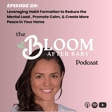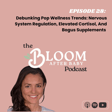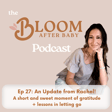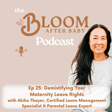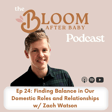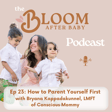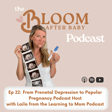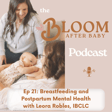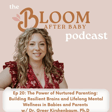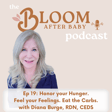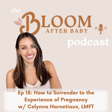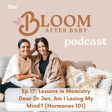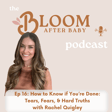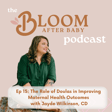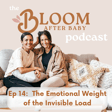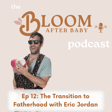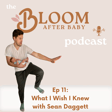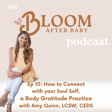
13. How to Fall Apart, with Dr. Cassidy Freitas, LMFT
Oh mama, we can't wait to get this one into your earbuds!
In this episode, the loving presence that is Dr. Cassidy Freitas takes us through the confusing, disorienting, wonderful, transformative process of becoming a mother. Besides being one of our long-time role models, Dr. Cassidy Freitas is a licensed Marriage and Family Therapist and was one of the first professionals to begin using social media to disseminate information around maternal mental health. In this raw and honest conversation, Dr. Cassidy shares her personal story of entering motherhood, the difficulties she endured, and the "beauty in the breakdown" of falling apart and rebuilding a new version of yourself as a mom.
We also talk about:
- Birth trauma and it's reverberating effects
- The surprising way mood disorders show up in postpartum
- Paternal mental health and postpartum depression in dads
- Domestic labor roles and the invisible emotional load
- Eve Rodsky’s book “Fair Play” which outlines a household system for distributing domestic labor
- Glennon Doyle Melton’s term “brutiful” (brutal and beautiful) from her book "Carry on Warrior"
If you are a new or expecting mom, this one is a must-listen!
You can find Dr. Cassidy on Instagram @drcassidy and her podcast "Holding Space", And attn California Parents! Dr. Cassidy's group practice is accepting new clients and they have so much support to offer you as you navigate the muddy waters of postpartum, parenting, and relationships. You can get in touch with them via her website www.drcassidymft.com
Other BAB resources related to this episode:
- Mindful Momming 10-Day Challenge
- Free Guide to Addressing Resentment in Your Relationship After Baby
- Dr. Jen's Practices for Connecting with Future You
If you enjoyed this episode and appreciate what we share here, please rate and review the show in your favorite podcast app! And come find us on Instagram @bloomafterbaby!
*Please note that this podcast is intended for educational purposes only, and is not a substitute for seeking individualized care from a mental health or medical professional*
Stay Tuned for more to come from Rachel Daggett and Dr Jen Jordan on all things motherhood and mental health - real mom experiences and insights from a licensed psychotherapist and medical doctor.
Learn more about us and access all of our courses, services, and free resources at bloomafterbaby.com
Pregnancy tips Postpartum wellness Prenatal care New motherhood Postpartum recovery Maternal health Pregnancy journey Expectant mothers Postpartum support Motherhood experience Parenting advice Family dynamics Parenting tips Raising children Family well-being Parenting challenges Family relationships Parenting insights Mental health for mothers Emotional well-being Coping with motherhood Maternal mental health Self-care for moms Stress management Emotional resilience Conversations with experts Interviews with mothers
